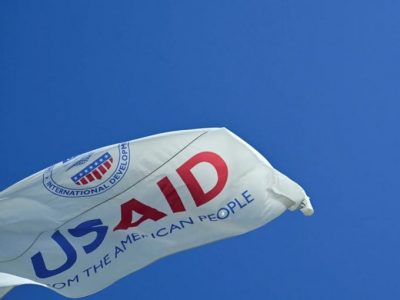Willfully transmitting of HIV has been a crime in Zimbabwe for decades as the government took the move to try and control the pandemic back then, however the same move has been causing serious stigmatization and society rift calling for decriminalization of the law.
UNAIDS congratulates Zimbabwe’s parliament for repealing section 79 of the Criminal Law Code, which criminalizes HIV transmission citing that the criminalization of HIV transmission is ineffective, discriminatory and undermines efforts to reduce new HIV infections. Such laws actively discourage people from getting tested for HIV and from being referred to the appropriate treatment and prevention services.
In March, Zimbabwe President Emmerson Mnangagwa signed into law a piece of legislation making bride prices—a customary payment made by the family of a prospective groom to his bride-to-be’s relatives—mandatory under national law. While the bill was seemingly unrelated to HIV transmission, Clause 53 of the Marriages Amendment Bill stripped criminal penalties in cases where an individual either knowingly or unknowingly exposes their sexual partner to HIV.
Prior to the legislation’s passage, any act of HIV transmission could result in a sentence of up to 20 years in prison under Section 79 of Zimbabwe’s Criminal Code. The statute was seldom enforced, but at least 16 people were targeted under Section 79 between October 2015 and December 2018,
“Public health goals are not served by denying people their individual rights and I commend Zimbabwe for taking this hugely important step,” said UNAIDS Executive Director, Winnie Byanyima. “This decision strengthens the HIV response in Zimbabwe by reducing the stigma and discrimination that too often prevents vulnerable groups of people from receiving HIV prevention, care and treatment services.”
UNAIDS has worked closely with Zimbabwe’s National AIDS Council, Zimbabwe Lawyers for Human Rights, parliamentarians, civil society activists and communities to advocate for the repeal of the law criminalizing HIV. Overly broad and inappropriate application of criminal law against people living with HIV remains a serious concern across the globe. More than 130 countries worldwide still criminalize HIV non-disclosure, exposure and transmission through either specific or general criminal legislation.
In 2019, Zimbabwe completed a legal environment assessment, which identified the criminalization of HIV transmission as a barrier to health care and a driver of stigma and discrimination for people living with HIV and other key populations. Since then, the United Nations Development Programme has worked with key populations and other stakeholders, convening meetings with parliamentarians and other partners to advance the recommendations of the legal environment assessment.
In 2018, UNAIDS, the International Association of Providers of AIDS Care and the International AIDS Society convened an expert group of scientists who developed an Expert Consensus Statement on the Science of HIV in the Context of Criminal Law. The statement calls on the criminal justice system to ensure that science informs the application of the law in criminal cases related to HIV.
Zimbabwe has made great progress in the response to HIV over the past decade. It is estimated that 1.2 million of the 1.3 million people living with HIV in the country are now on life-saving medicines. AIDS-related deaths have decreased by 63% since 2010, with new HIV infections down by 66% over the same period.







Comments